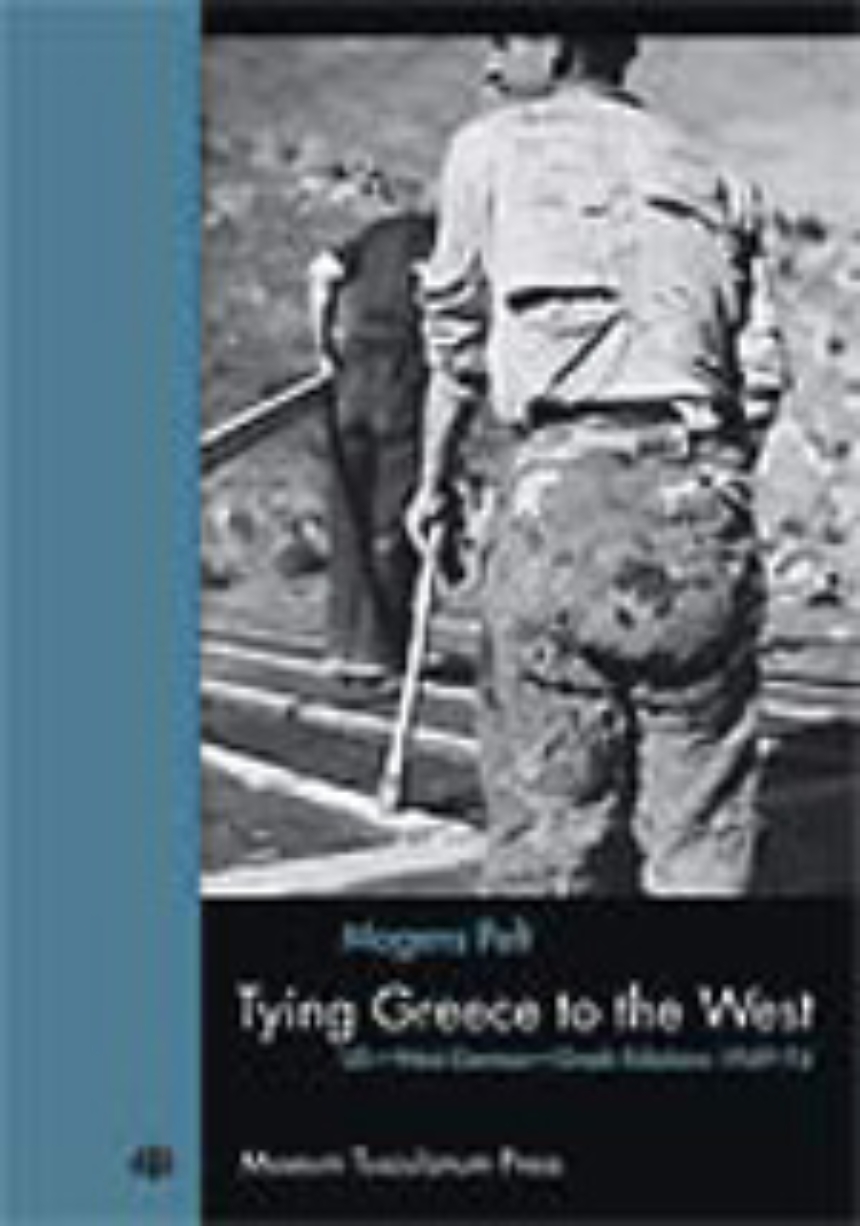Distributed for Museum Tusculanum Press
Tying Greece to the West
US-West German-Greek Relations 1949-74
Tying Greece to the West examines the reconstruction of Greece in the post-war era and how Greek foreign economic and political relations with the United States and West Germany developed, especially the Greek-West German trade and the American and West German financial and aid policy.It posits that US-West German policy towards Greece took the shape of a ‘burden-sharing’ i.e. Bonn gradually took over certain policies vis-à-vis Greece which were originally formulated in Washington and that this took place with American connivance. Furthermore, it investigates which impact Greek foreign relations had on the domestic development, particularly in relation to the establishment of the dictatorship in 1967, the so-called Colonels Regime.
It also analyzes the whole period of military regime and the relations between King Constantine II, the Colonels and the Americans.The Second World War disrupted the Greek economy, polarized politics and left Greece in a state of severe economic and social disorder. The Axis occupation was followed by civil war with devastating consequences and the Greek Civil War was one immediate reason for the declaration of the Truman Doctrine in 1947.
The Truman Doctrine made Greece subject to the most costly overseas American aid program ever in peace time. However, gradually, West Germany became the backbone in Greece’s foreign economic relations. In this way West Germany also took over a number of the policy goals which Washington had formulated since the declaration of the Truman Doctrine.
The Marshall Plan years were formative in this process which culminated during almost three years of protracted negotiations when West Germany was the driving force in Greece becoming the first associate member of EEC in 1962.
Reviews
Table of Contents
Acknowledgements
Introduction:
Sources
Literature and Interpretations
Burden-sharing between the United States and West Germany: An Introduction
Part 1: Economic and Political Stabilization in Greece, 1949-1955
US Economic and Political Stabilization Policy, 1945-1955
Athens-Washington-Bonn and the Greek Development Plan
Summary and Conclusion of Part I
Part II: Conflicting Economic Interests and Military Integration
The Greek-German Tobacco Trade, the United States and the Question of Greece’s Position in the West, 1945-1955
Summary and Conclusion of Part II
Part III: Frictions within NATO and Western Integration, 1955-1961
Burden-sharing, Soviet ‘Business Imperialism’ and the Emergence of the Bonn-Paris Axis
Greece, the United States, West Germany and the Eastern Mediterranean, 1955-1958
Greece, West Germany and the Issue of EEC Association, 1959-1961
Summary and Conclusion of Part III
Part IV: The Post-War Political Order Under Pressure, 1962-1974
Burden-sharing Under Strain: Challenges from the Bonn-Paris Axis and a More Independent West German Foreign Policy
Continued Greek Dependence on West Germany and the United States
The Greek Internal Political Crisis and the United States, 1962-1974
Summary and Conclusion of Part IV
Tying Greece to the West: US-West German-Greek Relations, 1949-1974
Bibliography
Notes Index

